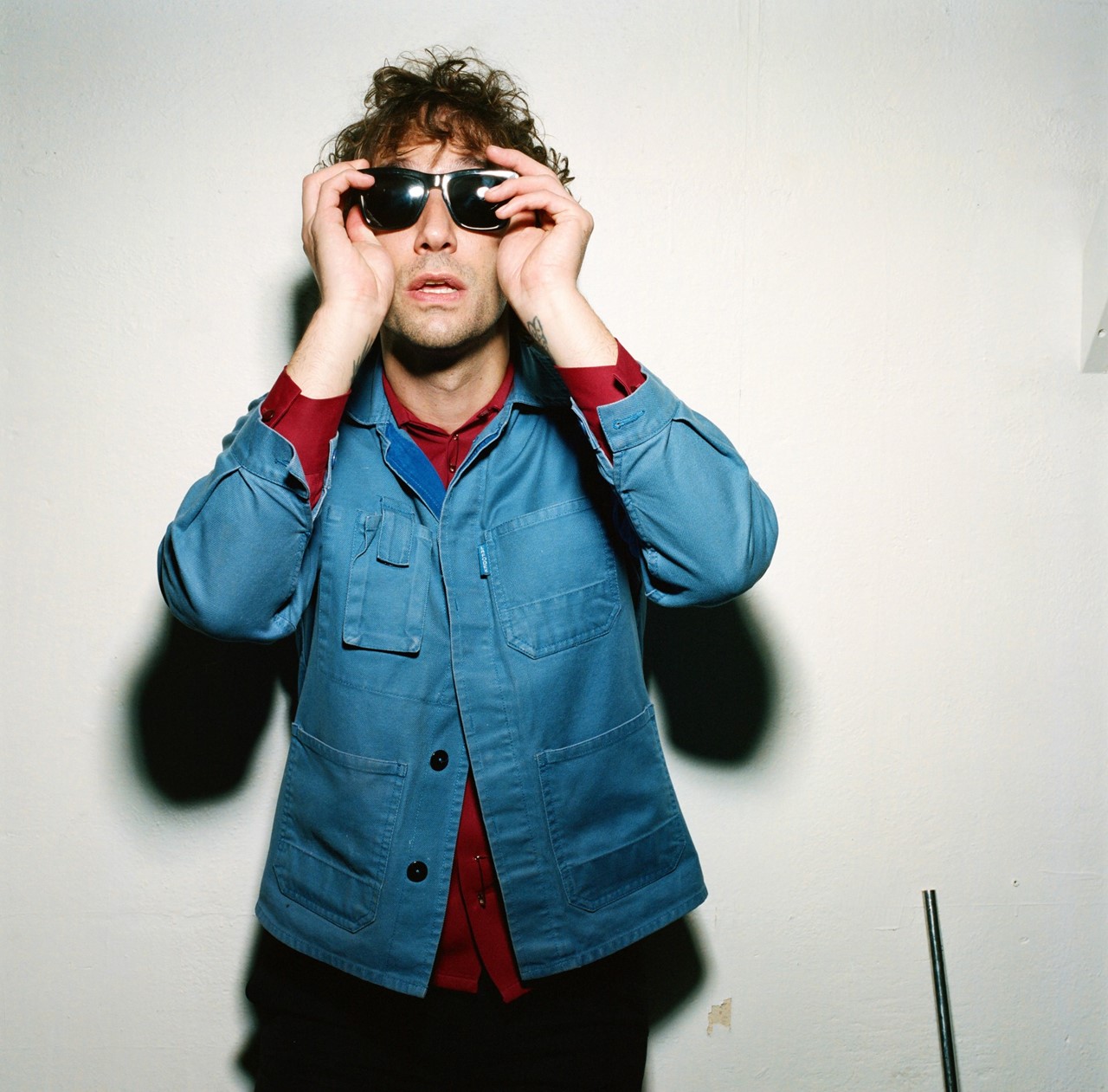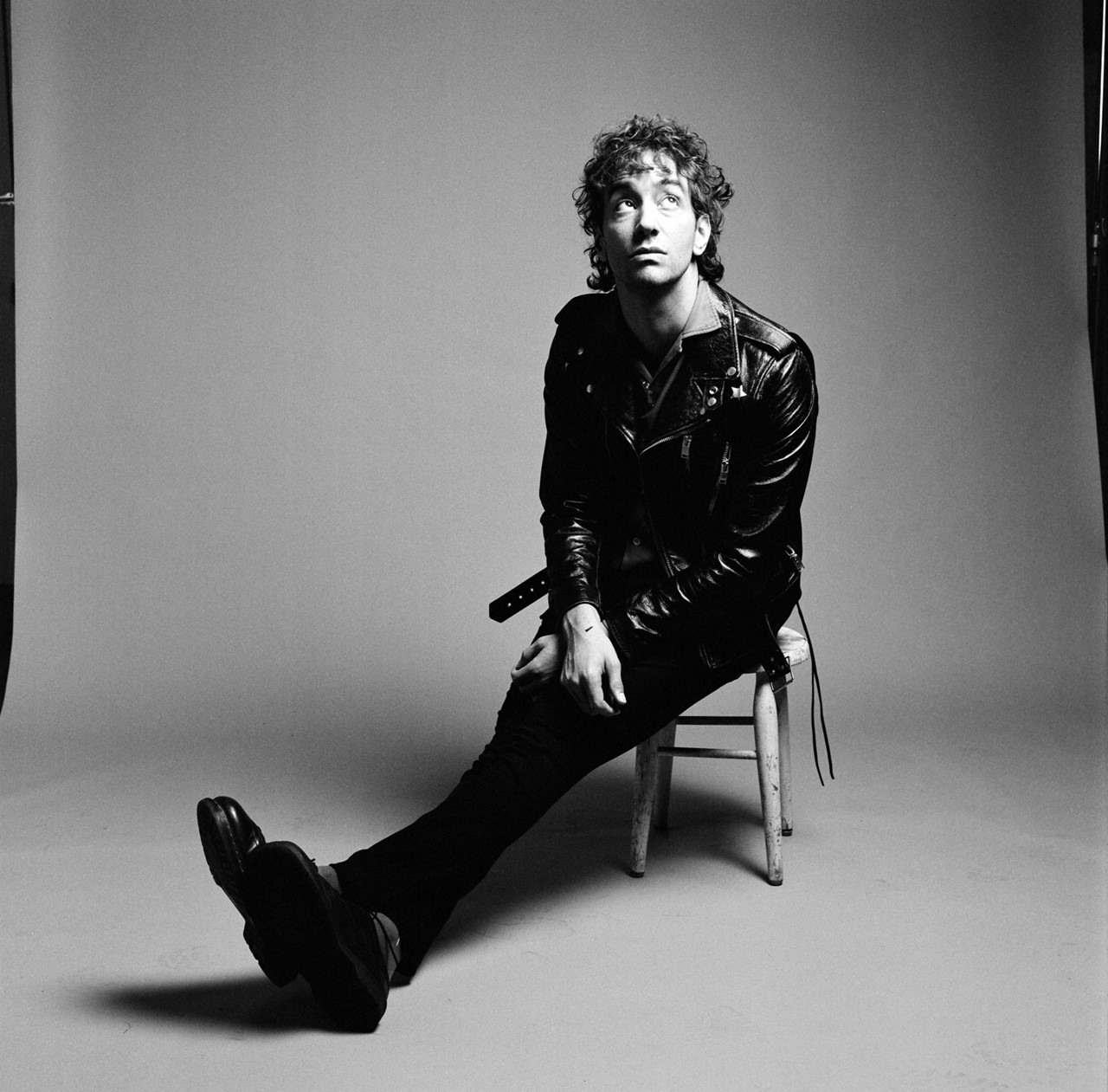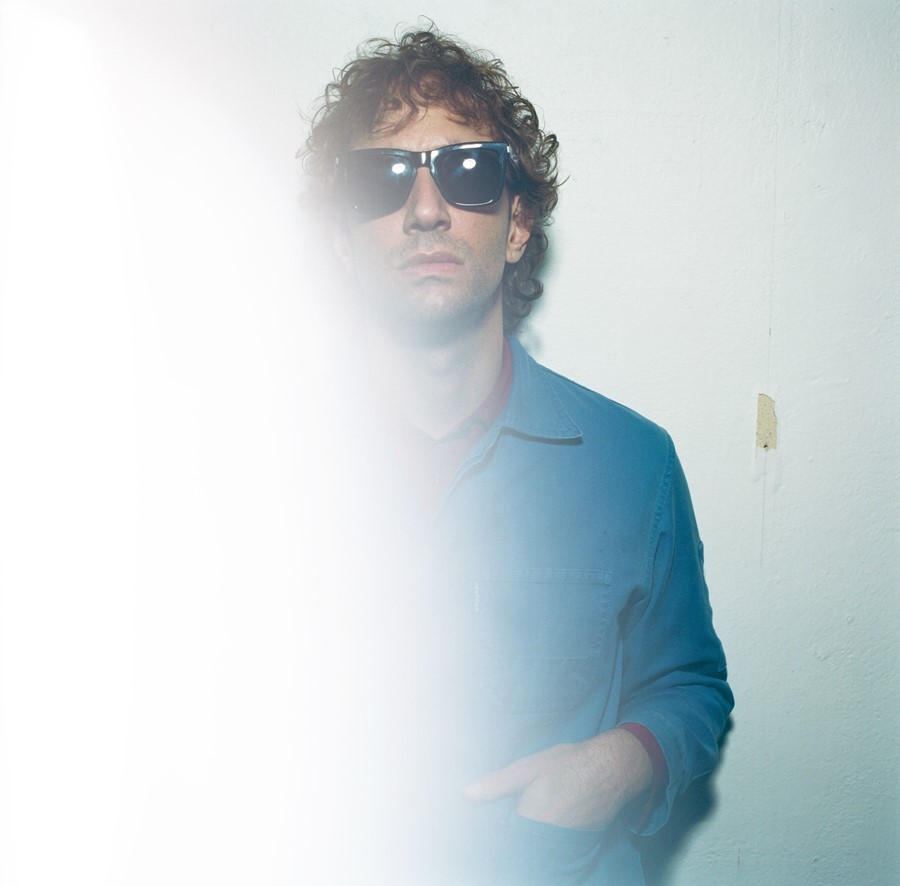Albert Hammond Jr on His New Album, Tackling OCD and Shaking Off His Past
- TextTom Connick
The iconic Strokes guitarist’s new album Francis Trouble comes loaded with expectation, but also captures an artist at his most content. Another Man meets him for a chat...
Albert Hammond Jr is so cool, he’s frozen half the country – or so the story goes. When Another Man meets the former guitarist for The Strokes, London has turned into an ice rink. Our interview has been pushed back a day due to the weather, though it turns out Hammond Jr almost didn’t make it to London at all due to a near-cancelled flight from Amsterdam. And while he is dressed in a slick, royal blue suit, and preceded by a widespread belief that he’s the aloof ‘cool guy’ of indie, it’s something of a surprise to find Hammond Jr all beaming smiles and hearty laughter.
Some of that may be due to his move away from the frantic New York City which birthed his musical career, back to his more relaxed birthplace of Los Angeles. A big part of that contrast between reputation and reality, however, he says comes simply from misplaced character traits. “I know my role in the rock history, in media,” he admits. “When you’re a guitar player in a successful band, you kinda get placed in a role; you get typecasted.”
Albert’s star turn? Guitarist and songwriter for one of modern rock’s most iconic groups – one credited with the 2000s’ indie boom and the revival of New York’s cultural cool. Without The Strokes’ debut album Is This It, the last 20 years of guitar music would be radically different; without his father, the prolific songwriter Albert Hammond Sr, the likes of Celine Dion, Aretha Franklin, Diana Ross, Glen Campbell and hundreds more would be without some of their greatest hits. Hammond Jr himself, with his spindly guitar riffs, pouffe of thick curly hair and cooler-than-cool demeanour, quickly became an indie-rock icon – whether he liked it or not. As a core part of The Strokes, Hammond Jr shaped cultural history – but as a solo musician, he’s content shaping his own. “It felt weird to me,” he says today of that prescribed role as a leather-jacketed indie icon, “because I didn’t fall in love with – or see myself as – that typecast. With the past records, people were asking me, ‘Are you trying to break out of it?’ I just didn’t get it, because I was just stuck inside myself. And with this one I noticed, ‘Oh, this is the record where I am breaking out of that.’”

Albert Hammond Jr’s new, fourth album Francis Trouble, then, comes as heavy with expectation as everything he’s put to tape previously – the difference is, this time he’s aware of it. He speaks freely of “the baggage of my name” (the record cover features only the album’s title, for that reason), and assures me that despite being 37 years old, Francis Trouble marks the moment he’s finally found the voice he’s been searching for. It’s a rollicking indie-pop ride; one that feels connected to, but distant from, the twiddly, almost math-rock-esque bounce of his last solo effort, 2015’s Momentary Masters. It’s also – whisper it – really fun. DvsL finds Hammond’s warm chuckle (which peppers our conversation) put to tape, while he sings of “tippy-toes” and late-night excess, while Far Away Truths thunders like some of The Strokes’ best. He finally seems like he’s not running from a past, arena-filling life, but instead relishing the present-day. “It takes all people, or all bands, a bit of time to figure out not only how you want to be perceived, but how you present that,” he says, tying a bright red bandana into a tight, even, perfectly-formed bow around his neck.
Presentation has always been something very core to Hammond Jr’s being. At one point, he talks of a childhood spent battling what he’d later come to understand as OCD. “I definitely liked things neat,” he shrugs, “I couldn’t let go of it moving – maybe I was protecting myself from the chaos, or it was my way of feeling like I had some control.” He admits to self-medicating in those early years – a habit which would snowball into heroin, cocaine and ketamine use when he was hit with fame – but says that now he feels like he’s got the order he was searching for. “I got worse,” he concedes, referencing a moment when the absurdist, existentialist essay The Myth Of Sisyphus led to him wondering what the point was in anything, “and it got better when… you just have to do bits of homework with it. I definitely understand its cycle now.” Establishing rituals and a methodical approach to things went some way to building the more level-headed Albert Hammond Jr of 2018 – something he sees as missing from a lot of modern society. “We lack modern mythology,” he says. “It’s a bit of a bummer – we lose ourselves in the modern society we built; it’s not really anything to do with where we’re from. I feel like it leads to a lot of unhappiness, because we’re not grounded in anything. I feel like religion tries to step in, but it’s too dated for where society is. But rituals, to me, helped ground me in the sense that I was alive.”

Francis Trouble finds Hammond Jr returning to that existentialist mindset for the first time in years. The record was inspired, in part, by his twin brother who died in the womb – the Francis of the record’s title. While he’d always been aware of the existence of a sibling, it was only recently that the full story became apparent to him. “There was a nail and some other… whatever, gunk, inside, leftover on my placenta when I came out,” he reveals. Already inspired by the art of shadow-work, a spiritual process which involves tuning into the darker half of your self, the knowledge that his unborn brother had latched onto him pre-birth sparked a profound change within Albert. “It just seemed… there’s something really magical, thematically, in that,” he admits.
“That’s the journey, that’s my duality,” says Albert, a note of relief in his voice as he recounts finding the order he’d been searching for in his personal storytelling. “I’ve literally lived with something else. When I was doing shadow-work, the image of my shadow was a child who wasn’t listened to, and his tantrums were me doing the things you shouldn’t. There’s a lot of creative energy in that, and a lot of cool things can come out of that, so I just had to nurture him. That tied in with my twin.” It had a sizeable impact on the songs he’d been writing for what would become Francis Trouble, too. Recent single Set To Attack, a noodling, soulful ode to overwhelming young love, took on a whole new importance. “I always thought it was this triumphant youth song, when you’re young you’re so passionate about one thing, and you can become so passionate that it overtakes your life,” he says. “It just becomes everything, and you want to conquer it. It made me sad, because it almost felt like I wrote it for the life he never had.”
Channelling the youth of his unborn twin on Francis Trouble has had a notable influence on Albert Hammond Jr. It’s impossible to ignore the conflation of his existential awakening regarding Francis and his new, breezier sense of self. The comfort he’s found in his own skin radiates from him as he skips off to another intercontinental flight, and proudly declares he wants the markedly more confident-sounding Francis Trouble to be filling theatres – even arenas – in months and years to come.
“I feel like I lived for a long time thinking I was maybe projecting one thing, and wasn’t,” Hammond Jr says as our meeting ends. “And now I weirdly feel like the very knowledgeable kid who fell in love with music, and the idea of wanting to sing, write and play guitar. Except, now, with the ability to do it!” Another chuckle. “You’re told you’ve gotta have another plan. To have that arc now… it’s a nice ‘fuck you’. A youthful ‘fuck you’, to all those people!”
Albert Hammond Jr.'s new album Francis Trouble is out now via Red Bull Records.












